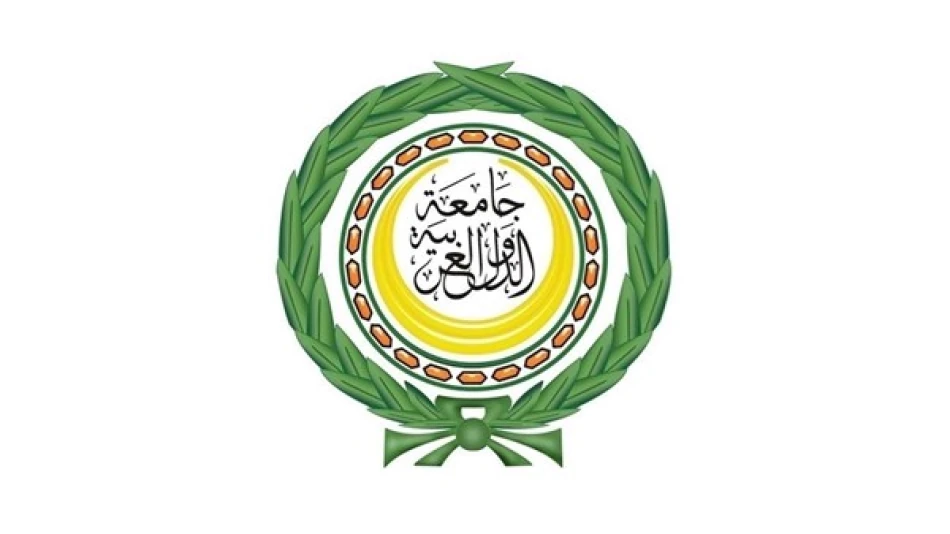
Arab Foreign Ministers Reaffirm Syria's Unity and Sovereignty, Emphasize Political Solution to Crisis
Arab League Doubles Down on Syria's Reintegration Despite Ongoing Crisis
The Arab League has reaffirmed its commitment to Syria's territorial integrity and political reintegration into the Arab fold, marking another step in Damascus's gradual rehabilitation after years of regional isolation. Meeting in Cairo under UAE presidency, foreign ministers emphasized that only political solutions—not military interventions—can resolve Syria's protracted conflict, while welcoming the country's continued participation in Arab institutions following its readmission last year.
Political Solutions Take Priority Over Military Action
The 164th ordinary session of Arab foreign ministers concluded with a clear message: political dialogue remains the sole pathway to ending Syria's crisis. The council called on all Syrian parties to engage seriously in the political process, adhering to relevant UN Security Council resolutions and Geneva outcomes.
This stance reflects a broader regional shift away from the military-first approaches that characterized the conflict's earlier phases. Unlike the interventionist strategies pursued by external powers, Arab states are now betting on diplomatic engagement and gradual normalization to influence Syria's trajectory.
Syria's Arab League Return Gains Momentum
The ministers welcomed Syria's continued engagement in joint Arab work following the restoration of its Arab League membership—a diplomatic victory for Damascus that occurred in May 2023 after more than a decade of suspension. The league emphasized the importance of activating Syria's participation in various Arab mechanisms, viewing this as crucial for collective Arab cooperation and addressing current regional challenges.
This represents a stark contrast to the isolation strategy that dominated Arab policy toward Syria from 2011 to 2023, suggesting that regional powers now see engagement rather than ostracization as more effective in shaping Syrian behavior.
Humanitarian Diplomacy as Political Tool
The Arab League praised the UAE's substantial humanitarian support through the Emirates Red Crescent, highlighting emergency aid delivery to Syrians affected by conflict and natural disasters. This humanitarian dimension serves multiple purposes: addressing genuine civilian needs while simultaneously building political goodwill and influence.
The council valued both Arab and international humanitarian contributions aimed at alleviating civilian suffering and providing medical, food, and shelter assistance. Such aid flows often serve as confidence-building measures that can facilitate broader political dialogue.
Counter-Terrorism Cooperation Continues
Ministers reaffirmed support for Arab and international efforts to combat terrorism and extremist organizations on Syrian territory, emphasizing the necessity of eliminating terrorist hotbeds that threaten Syria and regional stability.
This counter-terrorism focus provides common ground between Syria and its Arab neighbors, regardless of political differences. It also offers a practical framework for security cooperation that can build trust and interdependence over time.
Regional Implications and Strategic Calculations
The Arab League's continued embrace of Syria reflects broader regional realignments. Gulf states, particularly the UAE and Saudi Arabia, appear to have concluded that isolation failed to achieve desired political changes in Damascus. Instead, they're pursuing a strategy of gradual reintegration designed to increase their influence over Syrian decision-making.
This approach mirrors similar diplomatic strategies employed elsewhere in the region, where economic incentives and institutional participation are used to shape behavior rather than punitive isolation. The success of this strategy will likely influence how Arab states handle future regional crises and conflicts.
The meeting, chaired by UAE Minister of State Khalifa Shaheen Al Marar, addressed key Arab issues with Syria taking center stage alongside discussions of Arab national security and mutual cooperation frameworks.
Most Viewed News

 Layla Al Mansoori
Layla Al Mansoori






